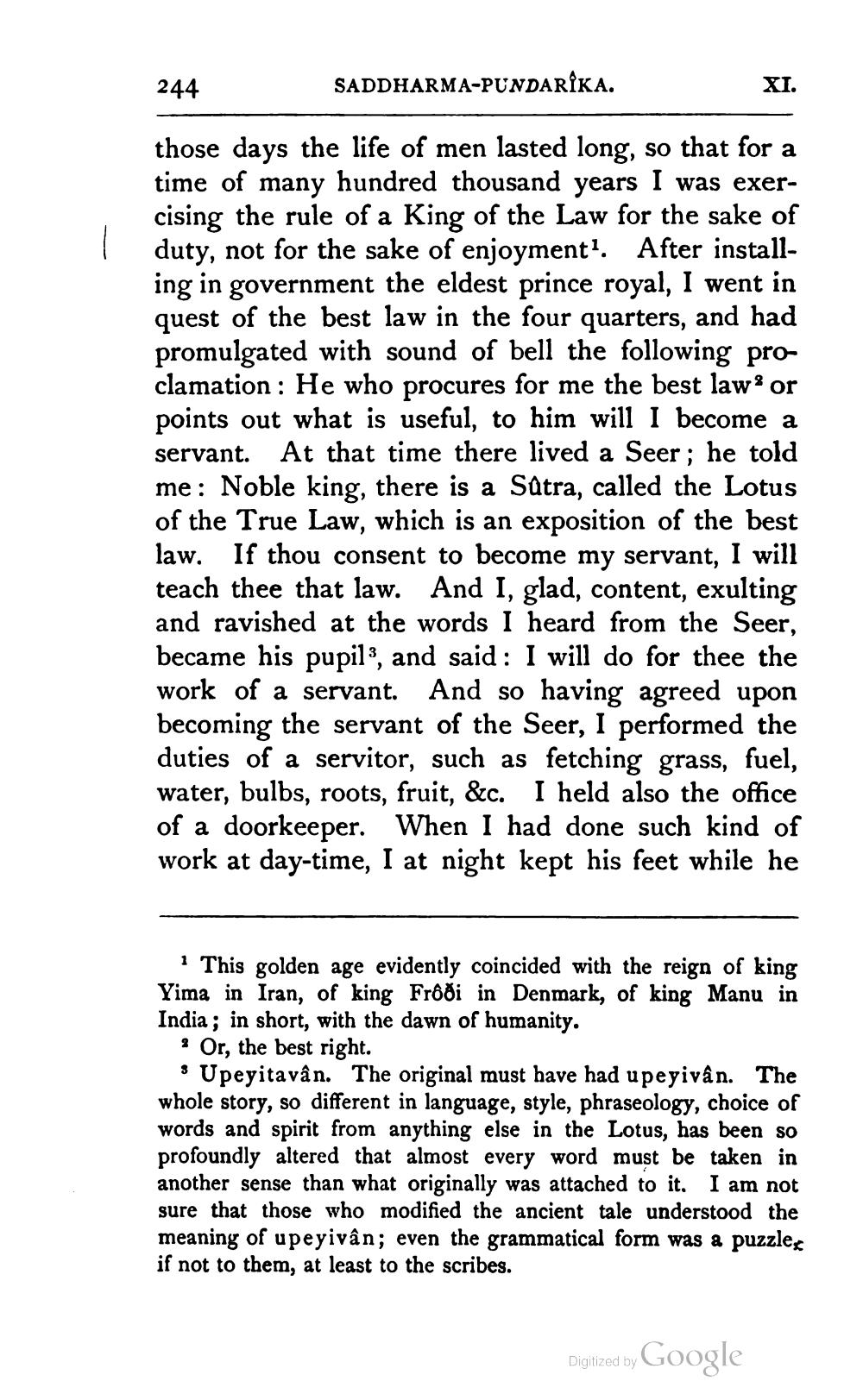________________
244
SADDHARMA-PUNDARIKA.
XI.
those days the life of men lasted long, so that for a time of many hundred thousand years I was exercising the rule of a King of the Law for the sake of duty, not for the sake of enjoyment". After installing in government the eldest prince royal, I went in quest of the best law in the four quarters, and had promulgated with sound of bell the following pro clamation : He who procures for me the best law or points out what is useful, to him will I become a servant. At that time there lived a Seer; he told me: Noble king, there is a Sutra, called the Lotus of the True Law, which is an exposition of the best law. If thou consent to become my servant, I will teach thee that law. And I, glad, content, exulting and ravished at the words I heard from the Seer, became his pupil, and said : I will do for thee the work of a servant. And so having agreed upon becoming the servant of the Seer, I performed the duties of a servitor, such as fetching grass, fuel, water, bulbs, roots, fruit, &c. I held also the office of a doorkeeper. When I had done such kind of work at day-time, I at night kept his feet while he
1 This golden age evidently coincided with the reign of king Yima in Iran, of king Fróði in Denmark, of king Manu in India; in short, with the dawn of humanity.
? Or, the best right.
s Upeyitavân. The original must have had upeyivân. The whole story, so different in language, style, phraseology, choice of words and spirit from anything else in the Lotus, has been so profoundly altered that almost every word must be taken in another sense than what originally was attached to it. I am not sure that those who modified the ancient tale understood the meaning of upeyivân; even the grammatical form was a puzzles if not to them, at least to the scribes.
Digitized by Google




